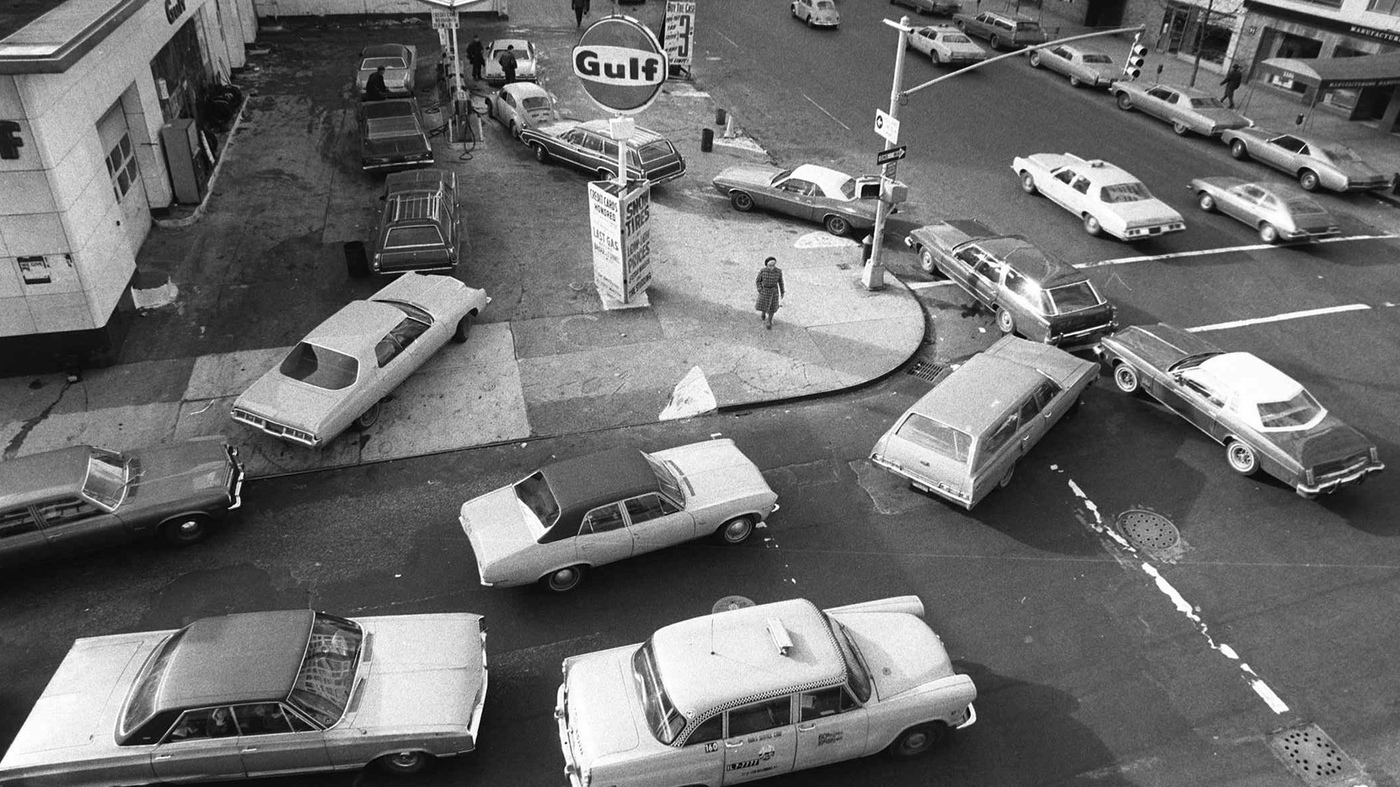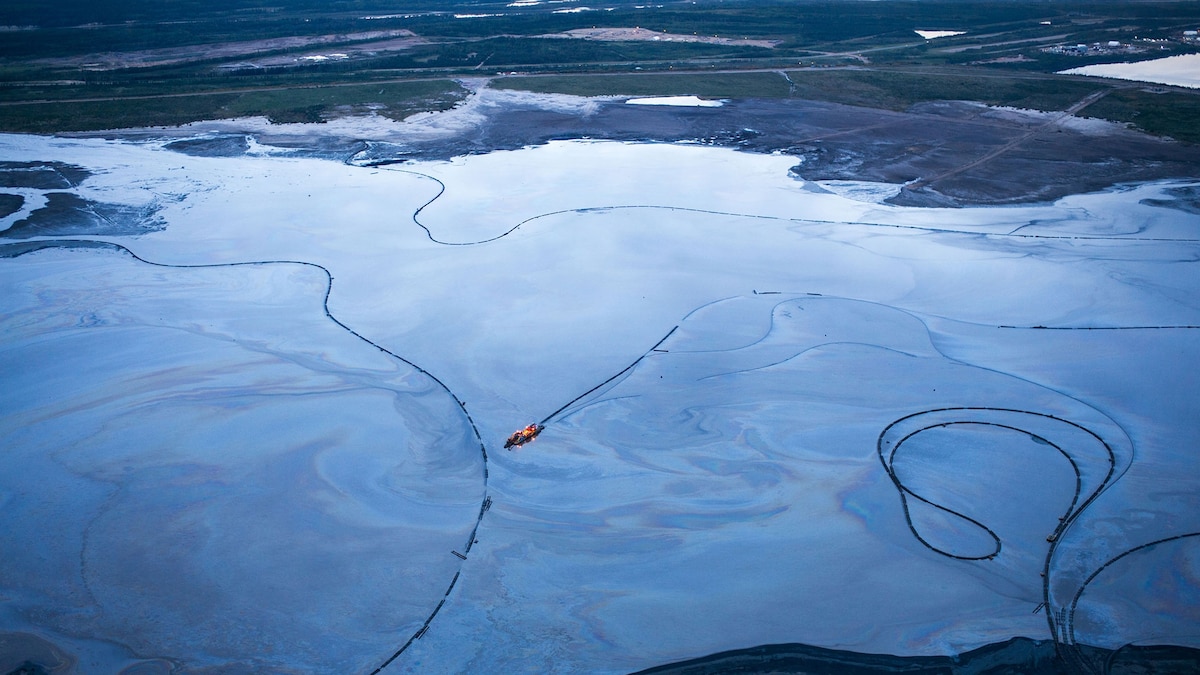BigHornRam
Well-known member

Oil Flirts With $70 After The OPEC+ Surprise | OilPrice.com
During early trading on Friday, Brent surpassed $69 per barrel while WTI was trading at $66
Follow along with the video below to see how to install our site as a web app on your home screen.
Note: This feature may not be available in some browsers.

Good, I hope it goes to $100.
Oil Flirts With $70 After The OPEC+ Surprise | OilPrice.com
During early trading on Friday, Brent surpassed $69 per barrel while WTI was trading at $66oilprice.com
Yeah good progress this week.
Oil Flirts With $70 After The OPEC+ Surprise | OilPrice.com
During early trading on Friday, Brent surpassed $69 per barrel while WTI was trading at $66oilprice.com

Yeah good progress this week.
The day rate is interesting but I tend to look more at the strip price. Depends company to company but a lot of companies hedge a good deal of production 1 to 2 years outs. To really take advantage of a price spike you have to produce over your hedge volumes.
The strip is definitely rising.
View attachment 176327
I was speaking for the perspective of an operator, and more alluding to Hillcorp et. al and ANWR.Lots of clever trade options to play both the ups & downs of the market even if a long hedge is in place.
That margin on crude though... never had much success with options.Lots of clever trade options to play both the ups & downs of the market even if a long hedge is in place.
I understood - I was also referring to companies- being physical in a product gives many options to benefit from the up swing even if hedged. Obviously at a price, but not totally locked out.I was speaking for the perspective of an operator, and more alluding to Hillcorp et. al and ANWR.
Prices need to come up a bit, personally I'm not sure if $100 is great for the industry, I think it leads to crappy behavior, too much production, taking on too much debt.
Options and other derivatives are not for the faint of heart. I would never dabble, but work with folks who do amazing things in tough markets.That margin on crude though... never had much success with options.
Hahaha. Yeah OPEC. A real symbol of cohesiveness and voluntary compliance. They will be over quota in a week.
Oil Flirts With $70 After The OPEC+ Surprise | OilPrice.com
During early trading on Friday, Brent surpassed $69 per barrel while WTI was trading at $66oilprice.com
I have clients that hope everyone drives electric in the near future, natural gas consumptions would have to increase exponentially to keep up with demand. Win/win in their eyes.Absolutely, and those are being addressed. The entire change has to be incremental, and it will be. Too fast and you disrupt things in ways that you might not think of initially. If we all drove electric vehicles in 5 yrs it would crush economies that are reliant on oil, countries other than the usual suspects in the middle east. Countries like Norway, Nigeria, Sudan, Columbia, Ecuador all heavily reliant on oil.
Change has to happen. I think people on HT would be more supportive of offshore wind and solar than onshore, because most of the latter is in places we enjoy.
What sketches me out is energy storage issues.I have clients that hope everyone drives electric in the near future, natural gas consumptions would have to increase exponentially to keep up with demand. Win/win in their eyes.
I don't think 100% is realistic, but I share your concern. After the Texas mess, most talk was about integrating the grids so Texas could buy power from other grids. The problem with a fully integrated national grid is it is vulnerable to cyber attack.What sketches me out is energy storage issues.
Look at Texas as a case study.
Right now vehicles run off of there own engine and supply of energy i.e. gas or diesel. Every gas station on the corner has huge storage tanks. Some farms/ranches/highway departments etc have their own storage tanks.
There is a pretty large and wildly dispersed reserve of fuel, across the county. If, lets say for argument the power goes out, like in Texas, for a week across the entire county. People can still drive, crews can get to work sites, fix lines, etc. There might be some hiccups but transportation can happen independently of the electric grid.
If you move to a electric car model everyone is tied to the grid, once your battery dies you're hosed. EV charging stations aren't wired to a massive battery with 1600 full vehicle charges, and then the grid, they are wired straight to the grid, if the power is out then there is no charging.
Unlike gasoline/oil, natural gas is hard to store, most NG stations are powered on demand. Essentially if NG isn't coming thru the line the power plant shuts down. Again, this literally just happened in Texas. Depending on the type, power plants do have the ability to use oil as a backup, which they can store. There are some underground gas storage operations. But I'm talking broad strokes.
So essentially, by going to 100% EV vehicles you are adding further potential to have a catastrophic failure. Again imagine if all the ERCOT crews were using Rivian trucks, and when the power went down crews only had the current charge on their vehicles battery and that was it.
TLDR: I'm risk adverse when it comes to national energy security, I don't like the idea of putting all our eggs in one basket.

100% reliance on anything, including methane is a bad idea wllm.What sketches me out is energy storage issues.
Look at Texas as a case study.
Right now vehicles run off of their own engine and supply of energy i.e. gas or diesel. Every gas station on the corner has huge storage tanks. Some farms/ranches/highway departments etc have their own storage tanks.
There is a pretty large and wildly dispersed reserve of fuel, across the county. If, lets say for argument the power goes out, like in Texas, for a week across the entire county. People can still drive, crews can get to work sites, fix lines, etc. There might be some hiccups but transportation can happen independently of the electric grid.
If you move to a electric car model everyone is tied to the grid, once your battery dies you're hosed. EV charging stations aren't wired to a massive battery with 1600 full vehicle charges, and then the grid, they are wired straight to the grid, if the power is out then there is no charging.
Unlike gasoline/oil, natural gas is hard to store, most NG stations are powered on demand. Essentially if NG isn't coming thru the line the power plant shuts down. Again, this literally just happened in Texas. Depending on the type, power plants do have the ability to use oil as a backup, which they can store. There are some underground gas storage operations. But I'm talking broad strokes.
So essentially, by going to 100% EV vehicles you are adding further potential to have a catastrophic failure. Again imagine if all the ERCOT crews were using Rivian trucks, and when the power went down crews only had the current charge on their vehicles battery and that was it.
TLDR: I'm risk adverse when it comes to national energy security, I don't like the idea of putting all our eggs in one basket.
You don't have to convince me. A chunk of coal coming out of the natrona mines has the same stored energy after its been transported from A to B. Can't say that about every source of energy. Just pointing out that going entirely EV can benefit some in the fossil fuel industry.What sketches me out is energy storage issues.
Look at Texas as a case study.
Right now vehicles run off of their own engine and supply of energy i.e. gas or diesel. Every gas station on the corner has huge storage tanks. Some farms/ranches/highway departments etc have their own storage tanks.
There is a pretty large and wildly dispersed reserve of fuel, across the county. If, lets say for argument the power goes out, like in Texas, for a week across the entire county. People can still drive, crews can get to work sites, fix lines, etc. There might be some hiccups but transportation can happen independently of the electric grid.
If you move to a electric car model everyone is tied to the grid, once your battery dies you're hosed. EV charging stations aren't wired to a massive battery with 1600 full vehicle charges, and then the grid, they are wired straight to the grid, if the power is out then there is no charging.
Unlike gasoline/oil, natural gas is hard to store, most NG stations are powered on demand. Essentially if NG isn't coming thru the line the power plant shuts down. Again, this literally just happened in Texas. Depending on the type, power plants do have the ability to use oil as a backup, which they can store. There are some underground gas storage operations. But I'm talking broad strokes.
So essentially, by going to 100% EV vehicles you are adding further potential to have a catastrophic failure. Again imagine if all the ERCOT crews were using Rivian trucks, and when the power went down crews only had the current charge on their vehicles battery and that was it.
TLDR: I'm risk adverse when it comes to national energy security, I don't like the idea of putting all our eggs in one basket.
100% agree, as I've said before, pragmatic solutions.100% reliance on anything, including methane is a bad idea wllm.
Agreed because #*^@#* Saudi Arabia. I remember that 15 of the 19 shitbags responsible for 9/11 were Saudi Arabian. I also love the cranes, sage grouse, migratory mammals and all disaffected natives whose land and lives are compromised by the pipeline. We in the free world must find a way to secure energy sources that do not fund terrorists. I think Canada is still proceeding with much of the production and if not pipeline across the US then by rail. I personally would gladly pay more at the pump and more for travel if it came with the assurance that it was not to fund some radicalized youth bent on destruction of the West.My point wllm in case you missed it was in 2013 the Saudi's were content with oil prices. So was the Obama administration and the rest of worlds energy producers. The day one keystone pipeline shut down by Obama 2.0 was a signal to the Saudi's and the rest of the world that oil prices are going up. You might not like a $100 plus barrel of oil for whatever reason, but its coming. Plan for it.
Oooookay. So as an American resident and given a choice where MY oil/gasoline/diesel/plastic/ect comes from. Alaska, Saudi Arabia, or the Alberta Tar Sands, I'm choosing Alaska.Agreed because #*^@#* Saudi Arabia. I remember that 15 of the 19 shitbags responsible for 9/11 were Saudi Arabian. I also love the cranes, sage grouse, migratory mammals and all disaffected natives whose land and lives are compromised by the pipeline. We in the free world must find a way to secure energy sources that do not fund terrorists. I think Canada is still proceeding with much of the production and if not pipeline across the US then by rail. I personally would gladly pay more at the pump and more for travel if it came with the assurance that it was not to fund some radicalized youth bent on destruction of the West.
